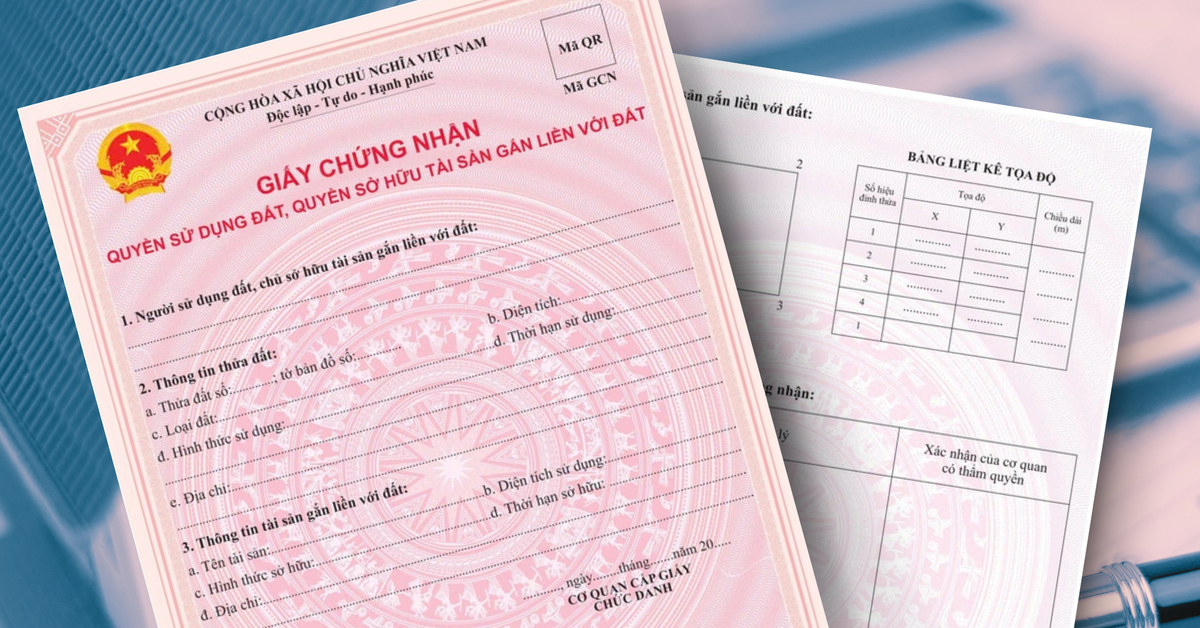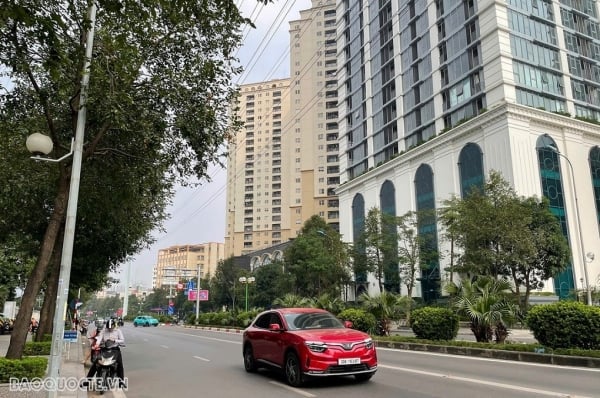According to the 2015 Civil Code, collateral to implement mortgage measures is regulated by law as follows:
- The collateral must be owned by the mortgagee, except in cases of property retention or ownership reservation.
- Collateral may be described generally, but must be identifiable.
- Collateral can be existing assets or assets formed in the future.
- The value of the collateral must be equivalent to the value of the secured obligation.
Accordingly, land without a red book can still be mortgaged at the bank.

Land without a red book can still be mortgaged for bank loans. (Illustration photo)
However, according to Clause 1, Article 118 of the 2014 Housing Law, for housing mortgage transactions, the housing must meet the following conditions:
- Land has no disputes, complaints, or lawsuits regarding ownership.
- Not subject to seizure to enforce a judgment or not subject to seizure to enforce an administrative decision that has come into legal effect of a competent state agency.
- Not subject to a land recovery decision or a notice of house clearance or demolition by a competent authority.
Although the law allows the right to mortgage land without a red book, in reality, whether or not to disburse may depend on each bank and their specific policies.
In addition, according to Clause 1, Article 119 of the 2014 Housing Law, a house mortgagee must meet the following conditions:
- Be the homeowner or a person permitted or authorized by the homeowner to mortgage the home in accordance with the provisions of the Housing Law and civil law.
- If an individual, he/she must have full civil capacity to conduct housing transactions according to the provisions of civil law (only people aged 18 or older can conduct mortgages on their own, except for those who have lost civil capacity; those who have difficulty in cognition, behavior control; or have limited civil capacity). For organizations, they need to have legal status to borrow capital from banks.
Lagerstroemia (synthesis)
Source



![[Photo] Comrade Khamtay Siphandone - a leader who contributed to fostering Vietnam-Laos relations](https://vstatic.vietnam.vn/vietnam/resource/IMAGE/2025/4/3/3d83ed2d26e2426fabd41862661dfff2)
![[Photo] Prime Minister Pham Minh Chinh receives CEO of Standard Chartered Group](https://vstatic.vietnam.vn/vietnam/resource/IMAGE/2025/4/2/125507ba412d4ebfb091fa7ddb936b3b)
![[Photo] Prime Minister Pham Minh Chinh receives Deputy Prime Minister of the Republic of Belarus Anatoly Sivak](https://vstatic.vietnam.vn/vietnam/resource/IMAGE/2025/4/2/79cdb685820a45868602e2fa576977a0)

![[Photo] General Secretary To Lam receives Russian Ambassador to Vietnam](https://vstatic.vietnam.vn/vietnam/resource/IMAGE/2025/4/2/b486192404d54058b15165174ea36c4e)

























































































Comment (0)